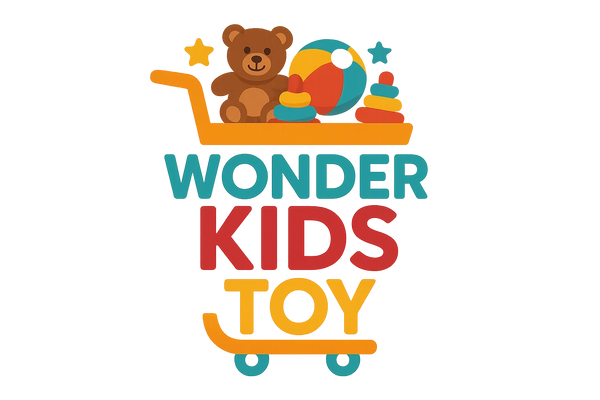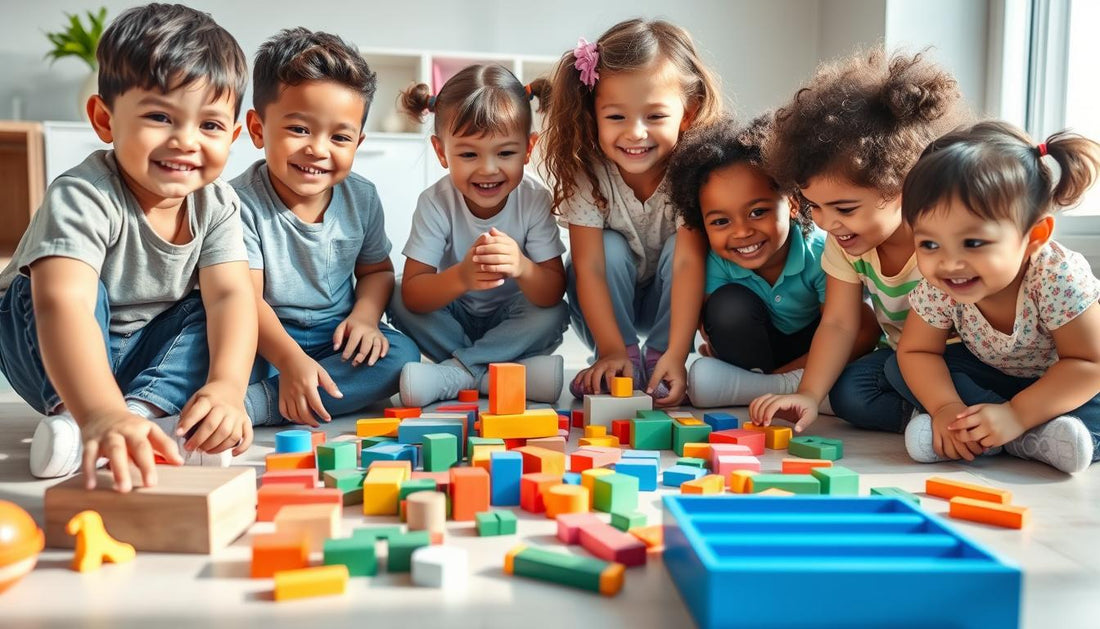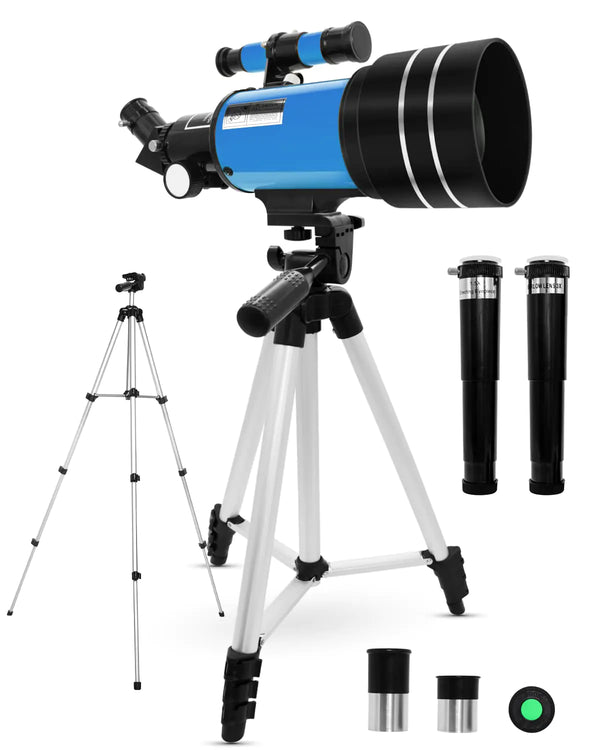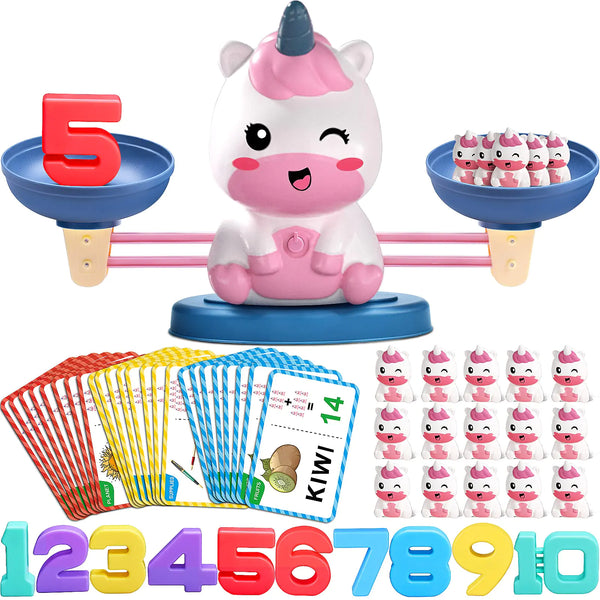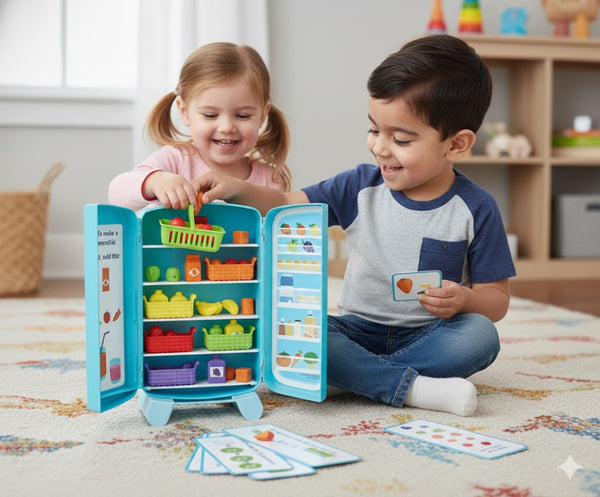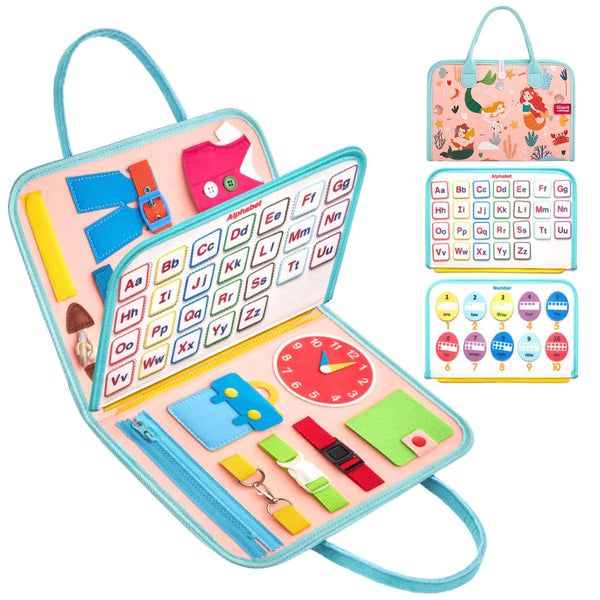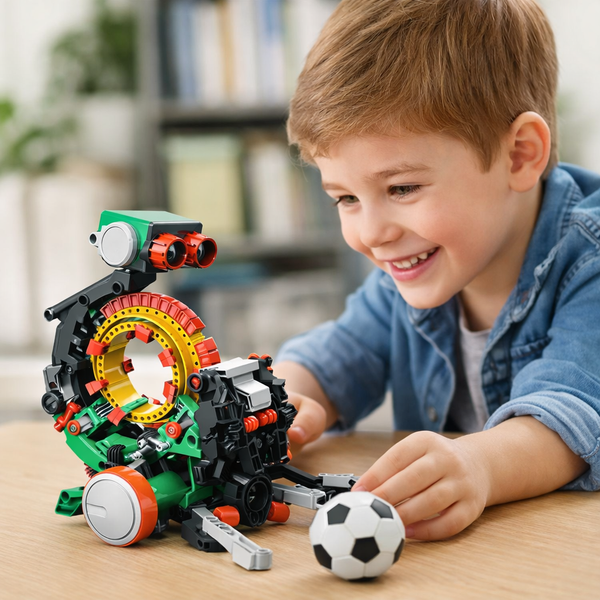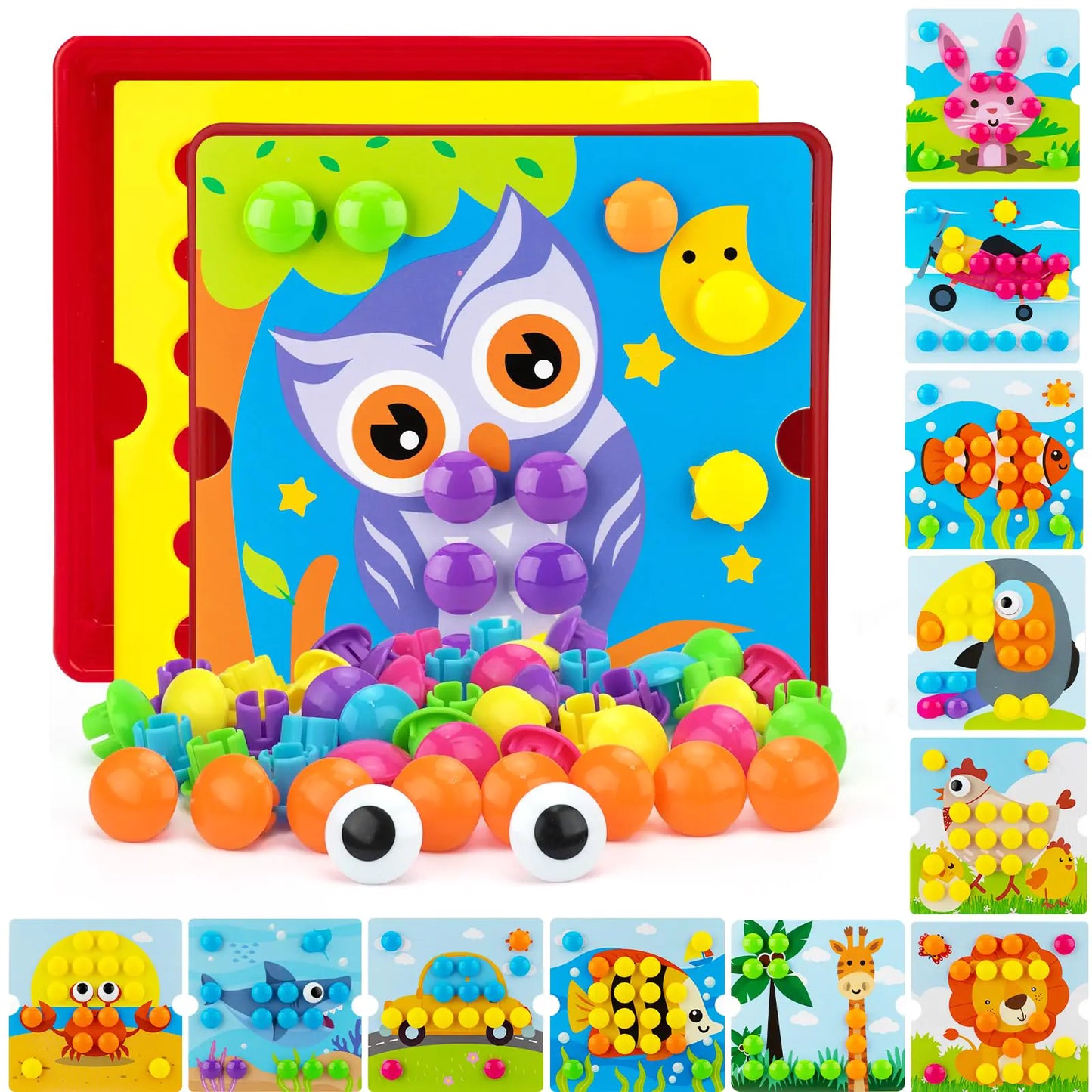Educational toys for kids offer the perfect blend of fun and learning, creating engaging experiences that develop crucial skills while children play. In today's digital age, these thoughtfully designed toys provide hands-on learning opportunities that screens simply can't match. They spark curiosity, encourage problem-solving, and lay the foundation for lifelong learning – all while kids are having a blast!
As parents and educators increasingly recognize the value of play-based learning, the market for quality educational toys continues to grow. But with countless options available, finding the right educational toys for your child can feel overwhelming. That's why we've created this comprehensive guide to help you discover toys that will engage, educate, and entertain the special children in your life.

What Makes a Toy Educational?
Not all toys marketed as "educational" deliver meaningful learning experiences. Truly educational toys engage children in active play while developing specific skills. Here's what to look for when evaluating whether a toy offers genuine educational value:
Key Characteristics of Quality Educational Toys
- Promotes active engagement rather than passive entertainment
- Develops specific cognitive, physical, or social-emotional skills
- Grows with the child, offering new challenges as abilities develop
- Encourages open-ended play with multiple ways to engage
- Sparks curiosity and a desire to explore and learn
- Balances structured learning with creative freedom

Find Toys That Make Learning Fun
Discover our carefully curated collection of educational toys that balance fun with developmental benefits.
Explore Educational ToysDevelopmental Benefits of Educational Toys
Educational toys do more than entertain – they help children develop crucial skills across multiple domains. Understanding these benefits can help you choose toys that support your child's specific developmental needs.
Cognitive Development

- Problem-solving skills
- Critical thinking
- Memory and attention
- Early math concepts
- Language development
Physical Development

- Fine motor skills
- Hand-eye coordination
- Gross motor development
- Spatial awareness
- Balance and coordination
Social-Emotional Growth

- Emotional regulation
- Cooperation and sharing
- Communication skills
- Empathy development
- Confidence building
Best Educational Toys for Different Age Groups
Children's developmental needs change dramatically as they grow. The best educational toys for kids are those that match their current abilities while gently challenging them to develop new skills. Here's our age-by-age guide to selecting the perfect educational toys.
Educational Toys for Infants and Babies (0-12 months)
During the first year, babies are developing sensory awareness, motor control, and beginning to understand cause and effect. The best toys for this age group stimulate the senses and encourage exploration.
- Soft Blocks: Perfect for grasping, stacking, and sensory exploration
- Activity Gyms: Encourage reaching, batting, and visual tracking
- Texture Books: Introduce early literacy while stimulating touch
- Rattles and Shakers: Develop cause-effect understanding and auditory discrimination
- Simple Stacking Toys: Build early motor coordination

Educational Toys for Toddlers (1-3 years)

Toddlers are rapidly developing language, beginning to understand concepts like colors and shapes, and refining their motor skills. They need toys that allow for active exploration and beginning pretend play.
- Shape Sorters: Teach shape recognition and problem-solving
- Simple Puzzles: Develop spatial awareness and persistence
- Stacking and Nesting Toys: Build understanding of size relationships
- Push and Pull Toys: Encourage physical movement and coordination
- Basic Building Blocks: Foster creativity and early engineering skills
Find Perfect Toys for Your Little One
Browse our selection of age-appropriate educational toys designed to support your child's developmental stage.
Shop by Age GroupEducational Toys for Preschoolers (3-5 years)
Preschoolers are developing more complex thinking skills, beginning to understand numbers and letters, and engaging in elaborate pretend play. They benefit from toys that introduce early academic concepts through playful activities.
- Alphabet and Number Toys: Build early literacy and numeracy
- Pattern Blocks: Develop mathematical thinking and design skills
- Pretend Play Sets: Foster language, creativity, and social understanding
- Simple Board Games: Teach turn-taking and following rules
- Art Supplies: Encourage self-expression and fine motor development

Educational Toys for Elementary-Aged Children (6-10 years)

School-aged children are ready for more complex challenges and can follow multi-step instructions. They benefit from toys that deepen their understanding of academic concepts and develop specialized interests.
- STEM Building Kits: Develop engineering and scientific thinking
- Coding Toys: Introduce computational thinking and logic
- Science Experiment Kits: Foster scientific inquiry and observation
- Strategy Games: Build critical thinking and planning skills
- Arts and Crafts Kits: Encourage creativity and attention to detail
How to Choose the Right Educational Toy
Finding the perfect educational toys for kids involves considering several important factors. Here's how to make smart choices that will engage your child and provide lasting educational value:
Match Interests and Learning Style

Consider your child's unique interests and how they prefer to learn. Some children are hands-on learners who need tactile experiences, while others may be more visual or auditory. Choose toys that align with their natural inclinations while gently expanding their horizons.
Consider Safety and Durability

Quality educational toys should be built to last and made from safe, non-toxic materials. Look for sturdy construction that can withstand enthusiastic play. For younger children, be particularly mindful of small parts that could pose choking hazards.
Seek Growth Potential

The best educational toys grow with your child, offering new challenges as skills develop. Look for toys with multiple difficulty levels or different ways to play that will maintain interest over time and provide good value for your investment.
Find Educational Toys They'll Love
Discover toys that perfectly match your child's interests, learning style, and developmental needs.
Browse Our CollectionPopular Categories of Educational Toys
Educational toys come in many forms, each offering unique learning benefits. Here are some of the most valuable categories to consider for your child's toy collection:
STEM Toys

STEM toys develop skills in science, technology, engineering, and mathematics through hands-on exploration. These toys foster critical thinking, problem-solving, and an early interest in technical fields.
Language and Literacy Toys

From alphabet blocks to storytelling games, language toys build vocabulary, phonemic awareness, and early reading skills. They create a foundation for communication and academic success.
Creative Arts Toys

Art supplies, musical instruments, and craft kits develop self-expression, fine motor skills, and creative thinking. These toys encourage children to explore their unique perspectives and build confidence.
Sensory and Motor Toys

Sensory toys stimulate the senses and develop motor coordination. These toys are particularly important for younger children and those with special sensory needs.
Logic and Strategy Games

Puzzles, strategy games, and brain teasers develop logical thinking, planning, and problem-solving. These toys teach children to think several steps ahead and consider multiple solutions.
Pretend Play Sets

Pretend play toys like play kitchens, doctor kits, and dollhouses develop social skills, emotional understanding, and narrative thinking. They allow children to explore different roles and scenarios.
Balancing Technology and Traditional Toys
In today's digital world, finding the right balance between screen-based learning and hands-on play is essential. Both have their place in a well-rounded approach to educational play.
Benefits of Traditional Toys
- Develop tactile awareness and fine motor skills
- Encourage active, physical engagement
- Foster face-to-face social interaction
- Promote open-ended, creative play
- Reduce screen time and associated concerns
Thoughtful Use of Educational Tech
- Can provide personalized learning experiences
- Offers interactive feedback and adaptation
- Introduces digital literacy in age-appropriate ways
- Provides access to diverse educational content
- Can complement hands-on learning when used mindfully

The key is finding balance. Prioritize hands-on, physical toys for younger children, and gradually introduce high-quality educational technology as children develop. Always favor interactive tech that encourages creation and problem-solving over passive consumption.
Frequently Asked Questions About Educational Toys
Are educational toys worth the investment?
Yes, quality educational toys are absolutely worth the investment. They provide developmental benefits that extend far beyond entertainment value. The right educational toys can support cognitive development, build essential skills, and foster a love of learning that will benefit children throughout their lives. Look for well-made toys that will last and can be used in multiple ways as your child grows.
What age is best to start with educational toys?
Learning begins from birth, so it's never too early to introduce age-appropriate educational toys. Even newborns benefit from simple high-contrast visual toys and gentle sensory experiences. As babies develop, their toys should evolve to match their growing abilities. The key is choosing toys that are developmentally appropriate and safe for each stage.
How many educational toys should a child have?
Quality matters more than quantity. A carefully selected collection of 10-15 versatile, open-ended educational toys is generally more beneficial than dozens of single-purpose items. Too many toys can actually overwhelm children and reduce meaningful engagement. Consider rotating toys to maintain interest and create a clutter-free play environment that encourages focus.
How do I know if a toy is truly educational?
Look beyond marketing claims and evaluate whether the toy actively engages your child in learning. Truly educational toys encourage problem-solving, creativity, and skill development rather than simply entertaining. They should offer appropriate challenges, grow with your child, and inspire multiple ways to play. Observe how your child interacts with the toy – sustained, focused engagement is a good indicator of educational value.
Investing in Your Child's Future Through Educational Play
Educational toys for kids are more than just playthings – they're powerful tools that shape developing minds and build essential skills for future success. By thoughtfully selecting toys that balance fun with learning, you're giving your child the gift of joyful discovery and laying the foundation for a lifelong love of learning.
Remember that the most valuable educational experiences happen when you engage with your child during play. Take time to play together, ask open-ended questions, and follow your child's lead as they explore. These shared moments of discovery create meaningful connections while maximizing the educational potential of every toy.

Start Their Learning Journey Today
Explore our carefully curated collection of educational toys designed to inspire, engage, and develop crucial skills while making learning fun.
Shop Educational Toys
